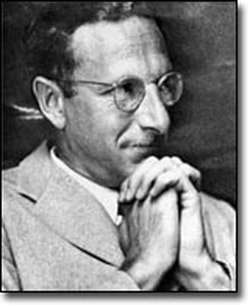What is TA
Presented by Dr. Jessica Leong (TAA Singapore founding member and current Vice-President),
this video was a feature on TA by the Singapore Association for Counselling (SAC)
this video was a feature on TA by the Singapore Association for Counselling (SAC)
Posted on 30 March 2021
Transactional Analysis began to take flight in the area of psychotherapy during the early 1960s. Eric Berne's theories have since been adopted on a worldwide scale. TA is first a philosophy based on the primary humanistic belief that everyone is OK. It is also a theoretical framework of personality development and functioning. Its design was for the purpose of promoting emotional & behavioural awareness. Transactional Analysts use TA as a tool to help people change.
Eric Berne 1910-1970
Founder of Transactional Analysis
Founder of Transactional Analysis
TA was developed and first used by Dr Eric Berne. He began a seminar of Social Psychiatry in San Francisco. Soon after the publication of his best seller book "Games People Play" (1964), he started to form the "The International Transactional Analysis Association" ITAA (Worldwide).
Since the late 1950s, TA has flourished to all parts of the world, such as TAA in the US, ITA in Britain, EATA in Europe, WPATA in Australia, NZTAA in New Zealand, CATA in Canada, ATAN in Asia and there are TA Associations in Japan, India, Africa, Latin America, Russia and China. It reached Singapore in 1987.
Transactional Analysis is:
The Philosophical Assumptions of TA:
Publications
Berne has written 8 books and there are many other key books on Transactional Analysis. Today "The Trasactional Analysis Journal "and "The Script" are officially published by the International TA Association. The Script updates TA practitioners on International events while the Journal covers areas like TA Research, TA Theory, TA Applications, TA commuications and also a book review section.
Training And Certification
The purpose of the International Training and Certification programmes are to ensure that there are competent, ethical TA practitioners for individuals and organisations wanting assistance, to support the development of Transactional Analysis theory and practice and psychotherapy. TA professional credentials may be obtained for the training and teaching of TA to others in 4 areas of Specialisations:
TA Training Paths
Since the late 1950s, TA has flourished to all parts of the world, such as TAA in the US, ITA in Britain, EATA in Europe, WPATA in Australia, NZTAA in New Zealand, CATA in Canada, ATAN in Asia and there are TA Associations in Japan, India, Africa, Latin America, Russia and China. It reached Singapore in 1987.
Transactional Analysis is:
- A Theory of Personality
- A philosophy of Equality and Reciprocity in Human Relations
- A Therapeutic Methodology
The Philosophical Assumptions of TA:
- People are OK
- Everyone has the capacity to think
- People decide their own destiny, and these decisions can be changed
Publications
Berne has written 8 books and there are many other key books on Transactional Analysis. Today "The Trasactional Analysis Journal "and "The Script" are officially published by the International TA Association. The Script updates TA practitioners on International events while the Journal covers areas like TA Research, TA Theory, TA Applications, TA commuications and also a book review section.
Training And Certification
The purpose of the International Training and Certification programmes are to ensure that there are competent, ethical TA practitioners for individuals and organisations wanting assistance, to support the development of Transactional Analysis theory and practice and psychotherapy. TA professional credentials may be obtained for the training and teaching of TA to others in 4 areas of Specialisations:
- Counselling
- Psychotherapy
- Organizational
- Educational
TA Training Paths
- Taking a TA 101 and a written examination
- Signing a Contract with a Teaching and Supervising Transactional Analyst
- Training and Supervision to meet the eligibility requirement for examination by the BOC
- Passing the BOC Level 1 Written and Oral Exams (This usually takes about 3 to 5 years)
- Attending an official Training Endorsement Workshop
- Signing a Contract and Training and Supervision to meet the eligibility for examinations
- Passing the BOC Level II Examinations (This usually takes another 5 to 7 years)
- Attaining Teaching and Supervising Certified Membership

